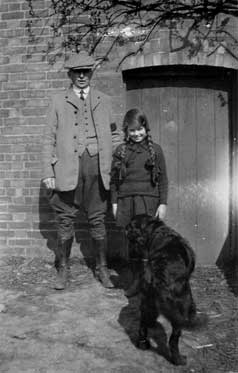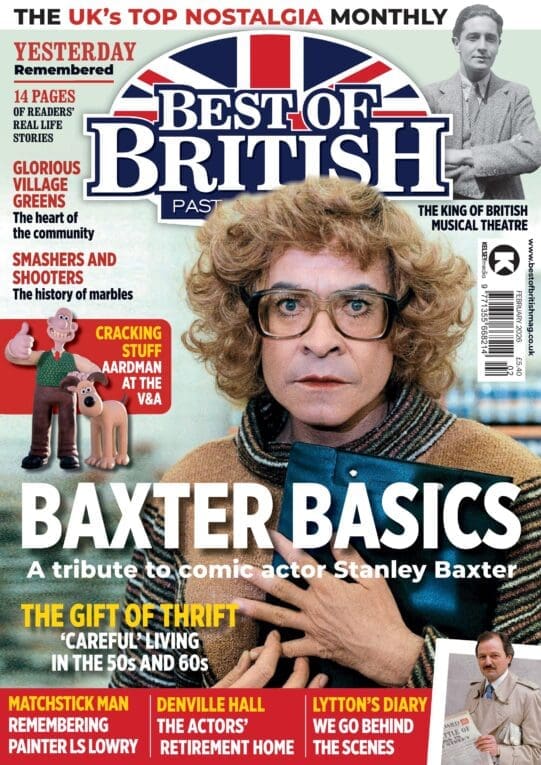Delights of growing up in the 1920s’ Fens.

I was six before I started school. The three-mile cycle ride to the nearest market town needed strong legs and stamina. In winter it could be an ordeal with blustery winds sweeping across the flat Fenland fields, strong enough to topple you off your bicycle if you were not pedalling furiously.
I hated school! My father was a fruit grower, so we had few neighbours nearby and being the youngest sibling of six, all much older than me, I had few playmates. That did not worry me, as there were plenty of animals around to keep me amused. Two huge carthorses pulled the carts and ploughs, two cows gave us milk, and with pigs, dogs and cats as well, it felt like a farm.
So, when school deprived me of my animal friends I was not happy. What would the cats and kittens do without me? The pink piglets would be waiting for household scraps to be tipped into their trough. Who would have time to teach the calves to drink from a bucket, without my small fingers in the milk weaning them from their mothers’ teats? And what about the dogs, who loved to run through the orchards hoping to scare a rabbit?
Enjoy more Best of British Magazine reading every month.
Click here to subscribe & save.
Such delights were missing when I had to join the kindergarten; pencils and books were poor compensation. Most playtimes found me in the copse beside the playing fields, crying my eyes out as I watched the red squirrels darting up and down the tree trunks; how I envied them their freedom.
Of course, in time I settled, made friends and joined in the games of tag, skipping (‘one potato, two potatoes, three…’), and ‘farmer’s in his den’, then back to the classroom for reading, writing and ‘rithmetic.
In the holidays, I enjoyed my freedom again, wandering through the orchards, fishing for sticklebacks in the dykes and, best of all, playing with the cats. I found them far more entertaining than dolls, allowing me to tuck them into the dolls’ pram for a walk, with the kittens ready to chase a ping pong ball.
My great joy was to be allowed to ride one of the big carthorses when they were taken along to the meadow after their day’s work; gentle giants whose great plumed feet could have crushed mine, before I was hoisted up on to their bare back, clinging onto their mane for safety.
In those far off days of the Twenties, we were almost self sufficient. The cows were milked morning and evening, the milk then taken to the cool dairy, where it was passed through the separator, the cream being left in shallow pans awaiting the weekly churn, which rotated until the butter curds formed. The whey was drained off and fed to the pigs, the curds patted into shapes with wooden hands, which could make a decorative top with perhaps a personal emblem to identify its origin. Two or three times a year, a pig would be killed to fill the larder. Hams were cured in brine, pork joints and bacon with lean meat used for sausages and brawns.
A large vegetable garden supplied us with seasonal crops. Beans could be salted down for winter use and potatoes and root vegetables were heaped into ‘clamps’ covered with earth; we could enjoy them long after harvesting them. A flock of hens kept us well supplied with eggs and the occasional roast chicken; that was a treat in those days!
Looking back, the days seemed safe and unhurried. We had no electricity, no gas or running water. Paraffin lamps gave us light, wicks trimmed daily to give us a golden glow behind the protective glass funnel. Water was pumped up in the scullery from the well outside. Cooking and heat were provided by the big black range in the kitchen. This was kept going night and day, fed with coal, and was the warm heart of the house. Ovens each side of the firebox were in constant use; bread, cakes and pies taking turns with roasts, stews and puddings. A huge black iron kettle hummed on the hob side. When larger quantities of hot water were needed, the brick-clad cauldron in the scullery would be filled and the firebox below stoked with wood and coal. Washday Monday produced a sauna-like steam bath, with sheets boiling away, then hung out on the line in the garden to dry. For Saturday night bath night, the copper once again seethed, hot water being bucketed up to the basic bathroom. There were no taps to fill the tub, but happily there was a wastepipe to empty the bath when the family had their weekly bath.
There was little social life in the countryside in winter, but an occasional visit to the cinema was a treat. We had a wireless and in the long, dark evenings the family would gather around the fire in the big dining room to listen to the news, jiggling the cat’s whisker into the crystal, until you heard ‘2LO calling’ and you knew you had tuned in to London – a mystery to me then, as now!
We played cards and wound up the old gramophone to enjoy the music when my older sisters would practice their dance steps ready for invitations to local dances. The Operatic Society gave yearly shows, often Gilbert and Sullivan musicals, which were very popular. For the children there was the New Year Party in the town hall, with games and dances such as Oranges and Lemons and Roger de Coverley; we had great fun and energies were replenished with splendid refreshments.
Summertime brought sports days and tennis parties but, for my family, holidays were not possible as the animals needed daily care. A day trip to the seaside was eagerly awaited when we piled into the old Ford Model T with bathers and a picnic, and made the most of sand and sea.
Another summer treat was a picnic in the hayfield, when I was allowed to invite my friends from school. Two lorries would fetch us; the horse-drawn one always the favourite and the motor lorry quicker, but not nearly so exciting for my town friends. We sat around on warm piles of hay to enjoy the feast that my sisters had provided, then explored the nearby strawberry field to find the ripe berries that had been missed at morning picking.
Such simple pleasures would not entertain my grandchildren, with their television and computer games. I am glad that I grew up in those unsophisticated days, glad to have been a child in the 1920s.
Elizabeth Webb, Seaton, Devon
This article appeared in the April 2009 issue of Best of British.

